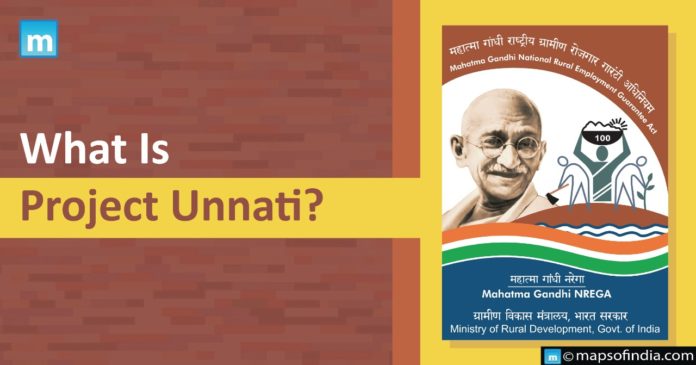What is Project Unnati?
The success of the States under the Unnati initiative is something that the Union Rural Development Ministry wishes to tie into its labour budget for the following fiscal year.
All you need to know about Project Unnati and its details are provided along the following lines:
A skill-upgrading initiative called the Unnati Project was started in 2020 to enhance the recipients of the Mahatma Gandhi NREGA’s skill set and enhance their quality of life. The aim is to enhance the skill set of the social beings and increase their efficiency to revive living standards and ability to avail basic amenities. Under the scheme, the chosen applicants are trained using three well-known training programmes. One adult family member (aged 18 to 45) who has worked 100 days under the Mahatma Gandhi NREGA in the fiscal year before the project’s start-up is intended to receive training under this project.
The Mahatma Gandhi NREGA provides 100 days of labour to the family of training candidates. Those undergoing training are paid a stipend for a maximum of 100 days, with one program per household at the going wage rate in their state or union territory. The Central Government covers all costs for the stipend in exchange for wage loss benefits. Over three years, the project will train 200,000 beneficiaries in 26 states and 2 union territories.
What do you mean by Mahatma Gandhi National Rural Employment Guarantee Act (MGNREGA)?
The National Rural Employment Guarantee Act, is often known as the Mahatma Gandhi National Rural Employment Guarantee Act or MNREGA.It was previously known as the National Rural Employment Guarantee Act, aimed to protect the “right to work” in India soon after the introduction of the bill in the parliament by Shri Raghuvansh Prasad Singh, who was the Minister for Rural Development.This act was passed on August 23, 2005, during the UPA administration of Shri Manmohan Singh, the then Prime minister of India.
What are the objectives of Project Unnati?
The objectives of Project Unnati are given along the following lines:
The project’s overall goal is to provide rural residents with access to different possible sources of income so they can become self-sufficient and pursue sustainable development. Giving recipients of the Mahatma Gandhi NREGA a skill, whether for self-employment or paid employment, enhances their quality of life.
In the 2020-21 fiscal year, 71 lakh households participated in the MGNREGS and worked for 100 days, but only 8,658 individuals were trained through the Unnati program. Similarly, only 12,577 out of 59 lakh eligible households in 2021–2022 received training. The project’s beginning coincided with the COVID-19 pandemic.




